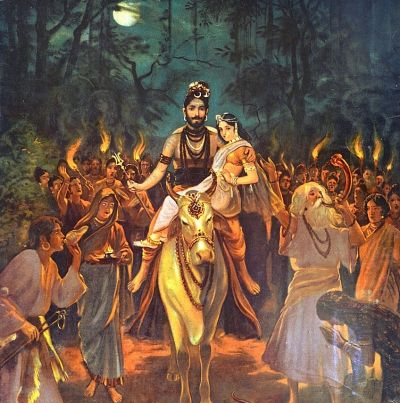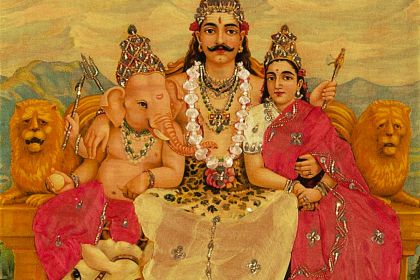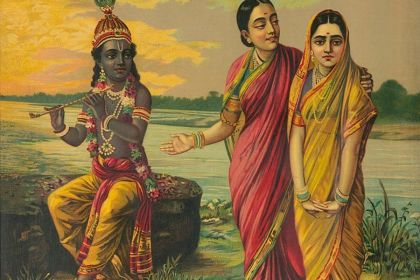MEDITATION
Mrityunjaya Mantra: meaning and lyrics of the oldest Shiva chant

Shiv Parvati Vivah by Raja Ravi Varma
The Mahamrityunjaya Mantra lyrics first appeared as a verse in the Rigveda—a collection of Vedic Sanskrit hymns composed around 1500 BCE and recognized as the oldest extant texts in any Indo-European language. The Hindu chant is addressed to Tryambaka, meaning the Three-eyed One and traditionally associated with Rudra as the most destructive aspect of Lord Shiva.
The concept of the third eye, also known as the Ajna chakra, describes an invisible eye located on the forehead that can provide a perception beyond ordinary sight. Originally a part of all Dharmic religions, the concept was later adopted by Christian mystics and gradually spread to other religions, becoming a pervasive symbol of a state of enlightenment.
Emphasizing the immense power of the Maha Mrityunjaya Mantra, the Puranic literature tells the legend of one rishi-sage Markandeya who was destined to die at the age of sixteen, but at the appointed moment, he managed to escape death by reciting a mantra. When the death god Yama came for the boy, he was defeated by Shiva and then revived by him in exchange for Markandeya's eternal life.
Here is the Sanskrit lyrics of the Maha Mrityunjaya Mantra in its original form found in the Rigveda:
Om Tryambakam Yajamahe Sugandhim Pushtivardhanam
Urvarukamiva Bandhanan Mrityor Mukshiya Maamritat
The word "maha" in the title is translated as "great" or "mighty," while the meaning of Mrityunjaya Mantra can be interpreted as: "We worship the Three-eyed one, the Fragrant one, who cherishes all creatures. Just as a cucumber is freed from a stem (by a gardener), may He free us from death for the sake of immortality".
It is important to understand that the Mrityunjaya Mantra, like most sacred hymns, has no literal translation and the very combination of syllables sung by a devotee imbues them with energy and gives them a blessing.
Listen to the Maha Mrityunjaya Mantra performed by Sonu Nigam:
The Mahamrityunjaya Mantra is credited with a very wide range of benefits, and its regular reading is said to provide practitioners with mental, emotional, and physical health. Chanting is recommended 108 times a day for healing, rejuvenation, and nurturance.



